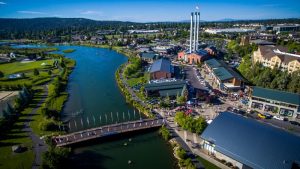A bipartisan group of House members introduced legislation on Jan. 16 that would use broadband service data mapping to identify areas of the country where high rates of poor maternal health overlap with a lack of broadband service access.
State CIOs say their top barriers to innovation are lack of funding, workforce skills, and time, according to a new report from the National Association of State Chief Information Officers (NASCIO) and Accenture.
The National Association of State Chief Information Officers (NASCIO) and the National Governors Association (NGA) today released new guidance on how state and local governments (SLGs) can better collaborate on cybersecurity matters.
The City of Las Vegas announced in a series of tweets on Jan. 8 that it dodged a major cyberattack. The city said it experienced a cyber compromise in the early morning hours of Jan. 7, but that it “immediately took steps to protect our data systems.”
In a nearly three hour hearing, the Committee on House Administration heard expert testimony regarding U.S. election security, with a specific focus on voting system security.
The City of Bend, Ore., announced Jan. 8 a data security incident may have compromised credit card information of some city utility customers.
The National Association of Secretaries of State (NASS) wrote to Congress on Jan. 6 to thank them for including $425 million in the fiscal year 2020 budget for election security purposes.
New York State has appointed Shoshanah Bewlay as executive director of the New York State Committee on Open Government, Secretary of State Rossana Rosado announced today.
In January, the 2020 U.S. Census officially begins, with the population count in remote parts of Alaska. By April 1, the process begins for the rest of the U.S. population. The census, conducted every 10 years, is the most important initiative of the U.S. Census Bureau, the Federal government’s largest statistical agency and the nation’s leading provider of quality data about its people and economy. The data collected by the census determines the number of seats each state has in the U.S. House of Representatives, and it is used to distribute more than $675 billion in Federal funds to local communities. This funding supports education, healthcare, infrastructure improvements, and more.













